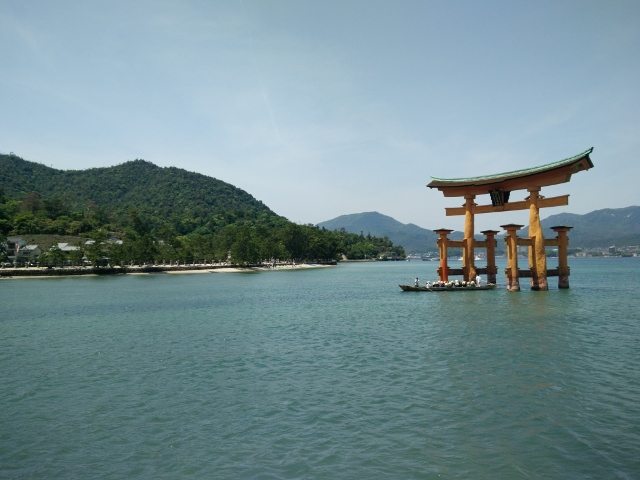Greetings from Japan!

Japan is fascinating and dynamic
.jpg)
In contrast, Japan is a dynamic, packed, well-organized, scrupulous, and beautiful country that can be fascinating and challenging to foreigners, but I have adapted quickly, many thanks to the friendly and helpful locals. Immediately absorbing their educational, research, and medical systems in just a few short weeks, I have seen some awe-inspiring landscapes, intriguing history and interestingly confusing cultures, from turnip-dancing “talent-shows” to the world’s largest wooden structure without a single nail and the largest bronze Buddha statue. Japan is such an international hub, where I met up with friends from Calgary, a friend from Heidelberg who is also doing an internship in Nagoya, an Argentinian friend whom I met in Heidelberg, and a Vancouver friend whom I met in Kenya on the volunteer trip. As much as we are fascinated by them, Japanese are also curious of the world. On top of the multiple language learning channels and world facts TV shows, I even saw them introducing and promoting Calgary Stampede, the badlands, Royal Tyrell Museum and the provincial gemstone – ammolite on TV.
Similarly to Germany, everything has a “natural” hierarchical order or rule that everyone follows, which makes everything run very smoothly while occasionally inefficient or prohibitive at times. The society still maintains the Confucius thought of respect and honour, where things are run top-down, from their conglomerate of large companies to research institutes, explaining the lack of small and new companies and why they have such expertise in some fields of research, respectively. Nonetheless, the degree of freedom in research can be higher than the west, at least at the PhD and Post-Doctoral level. Students apply for a research funding (separate from their salary) that can only be used for equipment purchase and research purposes, therefore they have more control over the direction of their experiments. However, it is very difficult for people to climb the ladder to become a professor. Many junior researchers simply run experiments for professors without a title themselves. Henceforth, the working culture is gruelling (as described by another fellow Calgarian and friend working in Tokyo). Spending 12-14 hours in the lab almost daily, it has been quite exhausting and difficult to time manage everything else. Also seeing each day that more than half of the commuters are napping, either sitting or standing, I can imagine how stressful it can be to live and work in Japan long term, and how it can impact the society as a whole. Although incredibly sleep deprived, the experience has been very rewarding and challenging in a positive way as well, encouraging me to reflect and optimize my experiments and plans daily to be maximally efficient and effective.
Currently, my internship is at the RIKEN Institute of Quantitative Biology. It’s the Japanese equivalent of the Max Plank Institute in Germany – a conglomerate of research-intensive and heavily funded institutions that also produced many Nobel Laureates. By moving another level more microscopic, my research in Japan looks at molecular transport cargo that runs along “train tracks” inside neurons using a one-of-kind super-resolution microscope. By mutating different parts of the transport proteins, we want to figure out the mechanisms of action and how they interact with the tracks. I am investigating two versions of the protein, one from mice and one from a worm, in hope of tracing its evolutionary development and differences. One of the components that compose the tracks is Tau, which is the key molecule in the Tau hypothesis of Alzheimer’s disease. The custom-made microscope can monitor single molecules moving along their tracks, as seen in this video link (Dissemination, Sharing, or Photographing whole or in part of this video is Strictly Prohibited.) First time seeing the video somewhat “turned my world upside down”. In all of the neuroscience textbooks and online resources, the tracks are shown as fixed straight tracks. However, these tracks are in fact dynamic: shifts, turns and crisscrosses while molecules traverse on them. I was shocked that no textbooks updated these “new” discoveries. I am in the process of analyzing all the data generated and hope to see something interesting in the results.
In terms of extra-curricular activities, I have been doing remote work for the German Neuroscience Olympics (DNO) and the Society of Brain Research (SOBR) in Melbourne. The DNO is a national and international competition for high school students who are passionate about neuroscience. I have been making a weekly post on facebook regarding new findings in brain research. On the Australian side, I have been helping with poster design work for events and promotions. I am quite happy to stay involved in each region I have stayed. Moreover, I attended several Rotary meetings and activities in Australia and participated in the regional all-district meeting and the Christmas gifts for Children fundraiser.
Lastly, I would like to thank The Rotary Foundation and the District 5360 Rotary again for giving me these incredible and unprecedented opportunities to not only learn the unique techniques and research in each region but also allowing me to see and experience different cultures and becoming a global citizen. If the research described above isn’t clear or you have further questions, please don’t hesitate to contact me.